American Bureau of Shipping
The American Bureau of Shipping (ABS) is a leading global provider of classification and technical advisory services to the marine and offshore industries. Established in 1862, it is one of the oldest classification societies in the world. ABS is headquartered in Houston, Texas, USA.
Primary Functions and Services
Classification
ABS classifies ships and offshore structures, ensuring they comply with specific standards related to design, construction, and operational maintenance. Classification is the cornerstone of ABS’s activities. The process includes:
- Review and approval of design plans
- Surveys during and after construction to confirm adherence to standards
- Periodic inspections throughout the lifecycle of the asset
Certification
ABS provides certification services for various regulations and standards, ensuring that marine assets meet international and national safety requirements. This includes:
- Safety Management Systems (SMS) under the International Safety Management (ISM) Code
- International Ship and Port Facility Security (ISPS) Code
- Maritime Labour Convention (MLC) compliance
Technical Advisory and Consultancy
ABS offers advisory services to help clients enhance the performance and operational efficiency of their assets. This includes:
- Risk assessment and management
- Environmental compliance
- Energy efficiency and sustainability initiatives
- Data-driven decision-making using digital technologies and analytics
Research and Development
ABS invests significantly in research and development to stay at the forefront of industry trends and technological advancements. This helps them to offer forward-thinking solutions for emerging challenges in the marine and offshore sectors.
Industry Focus
ABS serves a wide range of sectors including:
- Commercial shipping (tankers, bulk carriers, container ships, etc.)
- Offshore energy (oil and gas platforms, wind farms, etc.)
- Government and military vessels
- Yachts and leisure craft
Digital Solutions
In recent years, ABS has incorporated digital technologies to provide smart solutions for asset management. This includes:
- Remote survey and inspection capabilities
- Condition-based monitoring and maintenance
- Integration of Internet of Things (IoT) for real-time data collection and analytics
Global Presence
ABS operates globally, with a network of offices and surveyors in major port cities around the world. This allows them to provide timely and localized services to their clients.
Commitment to Safety and Environmental Stewardship
A core part of ABS’s mission is to promote safety at sea and the environmental sustainability of marine and offshore operations. They collaborate with industry stakeholders to develop and refine standards that protect human life, property, and the environment.
Affiliations and Subsidiaries
ABS is part of the ABS Group of Companies, which provides risk management and technical services to a wide range of sectors beyond marine and offshore, including power and energy, manufacturing, and government services.
Leadership and Reputation
With a history of over 160 years, ABS has a well-established reputation for quality, reliability, and continuous improvement. Its leadership in the field is backed by its rigorous approach to technical standards and its proactive stance on innovation and sustainability.
For more information, you can visit their official website at www.eagle.org.
Ships and so on
- Phone: Li
- Web: www.eagle.com
- Fax: 281-877-6795
Locations
American Bureau Of Shipping News
Marine Design: Multi-Physics Simulation (MPS) & Decarbonization Walk Hand-in-Hand

Chris Wiernicki, CEO, ABS, discusses the evolution of multi-physics simulation and its importance in reaching decarbonization goals through 2050.As the pace of technological evolution rapidly quickens, shipowners are increasingly forced to embrace change to ensure their fleets stay in compliance with new regulations and stave off obsolescence.Going forward, efficient, cost-effective delivery of goods from ‘point A to point B’ must be done in a more environmentally benign manner…
Ship Design: Pure 3D Process Deployed for US-built Advanced Rotortug
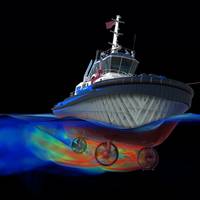
The evolution of commercial ship design and construction now includes a first in the U.S.: the first commercial U.S. vessel designed, built and verified using an end-to-end 3D design process, a project coordinated through ABS, Robert Allan Ltd. (RAL), Signet Maritime Corporation (Signet) and the U.S. Coast Guard (USCG).Designed by RAL, the Advanced Rotortug (ART), which is designed to escort vessels and offshore assets at the Port of Corpus Christi…
FUTURE FUELS: Could Hydrogen be the Answer to Shipping’s Decarbonization Goals?
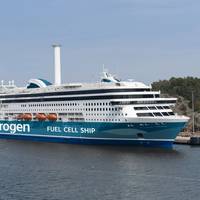
Climate change and reliable, clean, low emission fuels are the important factors for ship operators since January 1, 2020. Twelve months into the IMO2020 transition and the climate change debate is increasing as the primary discussion point on the world agenda – from industry events to the board rooms of the global corporations. Relative to this is the reliable supply of fuel since changing marine…
Tech Files: Offshore Safety Systems & Equipment
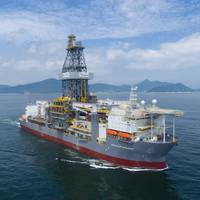
Safety of workers,structures, equipment and the environment are paramount in any offshore energy project. In the March/April print edition, Offshore Engineer took a look inside some notable newcomers.Wearable tech to boost drill floor safetyHaloGuard – Credit: TransoceanOffshore drilling contractor Transocean has recently deployed what it said was the offshore drilling industry’s first safety system…
Fuel, Propulsion, Emissions & the Decision to Scrap or Refit
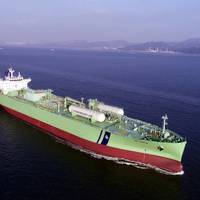
When the maritime history books are written, 2020 will be viewed as a year of pivots, re-invention and new paradigms. By February 2020, concerns about marine fuel’s sulfur content quickly shifted to near-term disruptions induced by the COVID-19 pandemic. By mid-year, with demand recovering, the conversation turned to longer term questions surrounding the moves towards reduced maritime carbon emissions and alternative fuels.
Great Ships of 2020: Seri Everest, World’s Largest Ethane Carrier
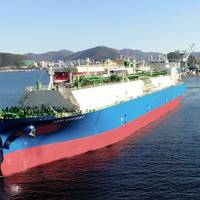
Seri Everest, the first in a series of three 98,000 cbm Very Large Ethane Carriers (VLECs) built at Samsung Heavy Industries Co., Ltd. (SHI) and delivered to MISC Berhad on October 30, 2020. Seri Everest is the first from a series of six VLECs that MISC purchased in July 2020. As a second generation VLEC, Seri Everest is one of the largest vessels of its kind in the world.With the delivery of MISC’s first VLEC – Seri Everest, she has set a new benchmark in the ethane market.
Addressing the New IMO Guidelines for Second Generation Intact Stability
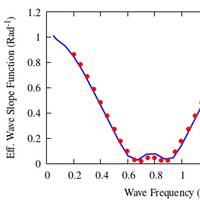
The common perception of intact stability has remained largely unchanged over the last few decades, where a vessel’s stability is evaluated using classical and static means: limits on righting arms, residual areas, and determining maximal VCG (or minimal GM) composite curves. These methods are familiar to most naval architects and are taught at a fundamental level in most naval architecture engineering…
Digitizing Risk-based Integrity Management of FPSOs
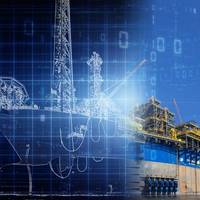
Industries are adapting to an increasingly digitalized landscape. The floating production, storage and offloading (FPSO) industry is no different. As concerted efforts are made to improve project economics Matt Tremblay, ABS Senior Vice President, Global Offshore, discusses how digitalization can increase safety, reduce costs, and build robust technical and operational capabilities.No one could have predicted what a challenging year 2020 would become.
Maritime Resilience and the Human Element at MRS2020
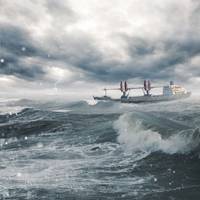
Has the age of maritime discovery and exploration actually ended? Perhaps not exactly. As the history of maritime resilience and the human element shows, as far back as the 1500s and earlier, from using new navigational aids and improved ship designs, to coastal and inland route sailing, to navigating on open seas with uncertain charts, wayward icebergs, dense fog and luckily at times, clear starry nights, mariners have faced human element and maritime resiliency challenges.
Maritime History: Columbia Lighting the World; How Classification Can Make a Difference
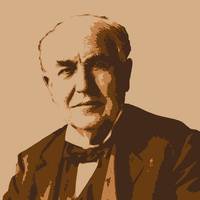
I don’t remember when I discovered that the first application of lightbulbs occurred at sea rather than ashore. But when I dug a little deeper into the subject recently, I came across an interesting set of coincidences that shows how innovation often relies on simply doing, rather than endlessly talking about it. After Thomas Edison managed to make sufficient improvements to the lightbulb concept to have it show commercial viability in late 1879…
Ship Emissions: ABS Spearheads the Future of EEDI for Ships

A team led by ABS has been awarded a contract by the European Commission (EC) to explore future directions for the IMO’s Energy Efficiency Design Index (EEDI) for ships.The landmark study will look at ways to improve and accelerate the integration of low-carbon fuels and innovative technologies into the requirements of the index, which was originally created to reduce emissions from ships by promoting design improvements and the adoption of more energy-efficient power systems.The EC…
Future Propulsion & Setting the Course to Low-Carbon Shipping
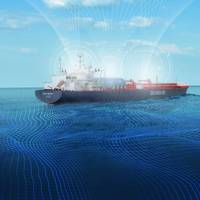
The pace at which the maritime industry transitions to low- and zero-carbon fuels will have the single biggest impact on its global carbon footprint, more than predictable shifts in commodity demand, advances in ship technology and operating practices, or new designs.That is a key finding of a comprehensive new report, Setting the Course to Low-Carbon Shipping, from the American Bureau of ShippingThe…
ABS’ Wiernicki: “COVID-19 will function as threat, a disruptor and catalyst for change”

As COVID-19 and a historically weak energy market wreaks havoc on the maritime industry, Christopher J. Wiernicki, CEO, American Bureau of Shipping, tells Maritime Reporter & Engineering News in its May 2020 edition that “COVID-19 will function as threat, a disruptor and catalyst for change, driving class further away from calendar maintenance towards predictive operations. The industry will accelerate its digitally driven movement into condition-based approaches and real-time…
Future Ship Fuels: Cut through the Smoke

Ship owners increasingly face complex investment decisions as they try to navigate the most efficient course to the low-carbon future. Ever since the IMO set the industry’s ambitious emission-reduction targets for 2030 and 2050, owners have been inundated with information about future fuels and technologies that may, or may not, ultimately lower the carbon footprints of their fleet.Some of the new technologies hold promise…
Offshore Wind: The Domino Effect
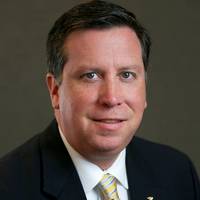
Matt Tremblay, SVP, Global Offshore, ABS, discusses the next hot growth market ... offshore wind. While the market grows, the question begs: Is the U.S. marine industry ready to meet demand?The American Bureau of Shipping convened a conference to discuss the pace and direction of the U.S. offshore wind market, including challenges and opportunities for maritime, offshore, subsea and logistics markets.
MarineLink's "Top 10" Festive Video Pops

As 2019 winds down, sit back for a lighthearted look at what the editorial teams at Maritime Reporter & Engineering News, MarineNews, Marine Technology Reporter & Offshore Engineer have found and dubbed the top 10 festive holiday videos from across the maritime, offshore energy and subsea sectors.While this is certainly not the "Oscars," hat's off to Subsea 7 and Port IT for their slick animated productions, and to the U.S.
Will 2020 be the year for Subsea Mining?
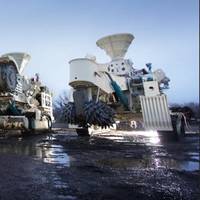
Anyone who has been around the Offshore Oil and Gas or the Marine industries for long has heard of plans for mining various minerals located on or just below the seafloor. In fact, when Howard Hughes built the Glomar Explorer in 1972, the cover story for its true mission – recovering a Soviet submarine - was that the rig would be used to mine manganese nodules from the deep ocean floor. This cover…
Small Scale FSRU: Think Smarter Not Bigger
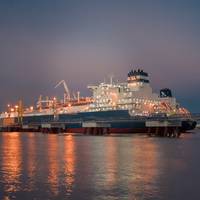
The global search for lower carbon forms of energy and demand for cost-effective ways to serve power demand in emerging markets and remote locations is driving interest in floating storage and regasification units (FSRU).FSRUs are a faster and more flexible way to import natural gas to power-constrained places, so demand for the units is increasing and the business case for owning them is growing stronger.Their…
Setting the Course for Low Carbon Shipping
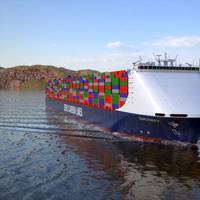
In a collective call to action for the decarbonization of shipping last year, 34 signatory CEOs from the industry made clear that efforts to significantly lower the carbon footprint of shipping presented “biggest technology challenge in the past 100 years”.This statement was not an exaggeration. In fact, the transition to a low-carbon future will take more than an unprecedented commitment to the research and development that traditionally underpins technological advance.
OSVs: Restarting that Idled Vessel
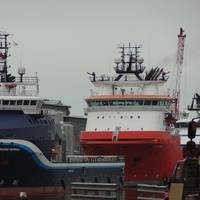
Owners of offshore support vessels (OSV) are beginning to examine the possibility of reactivating some of their fleet even as the consistent volatility of oil prices and a healthy stream of ships projected from global shipyards keeps their enthusiasm in check.According to Clarksons, demand for the versatile ships, which support offshore exploration and production activities around the world, edged up 3% in 2018…







